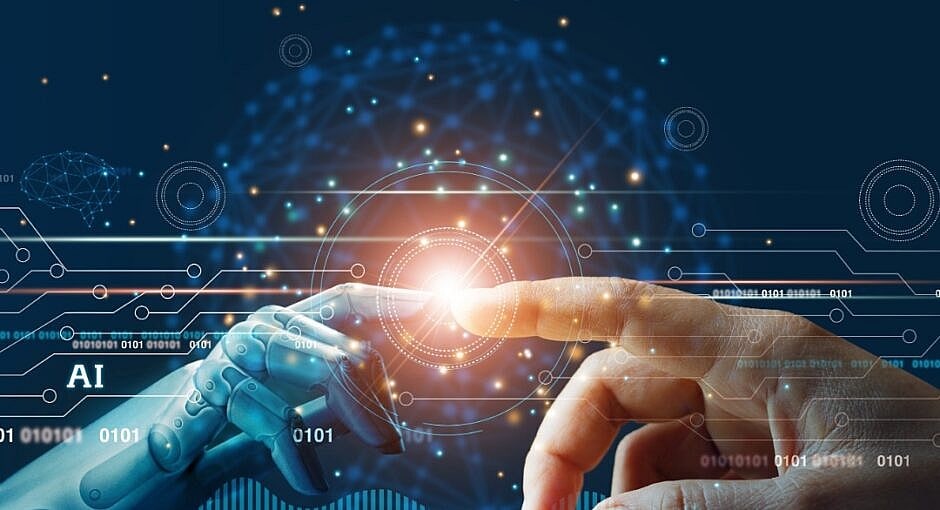Generative AI, a subset of artificial intelligence, has seen tremendous growth over the past few years. As AI continues to evolve, it’s impacting human intelligence in ways we could have never imagined. This article will explore the history of generative AI, its implications on human intelligence, ethical considerations, and the future of this ever-evolving technology.
The Journey of Generative AI
Early Beginnings
The roots of generative AI can be traced back to the 1950s when researchers began exploring the potential of machines to simulate human intelligence. Early AI systems like ELIZA and SHRDLU laid the groundwork for the development of more advanced generative models. These systems were rule-based and relied on pre-programmed responses, which limited their ability to generate truly novel content.
The Emergence of Neural Networks
The introduction of neural networks, inspired by the human brain, marked a significant advancement in AI. These networks consist of interconnected layers of nodes, allowing for the learning and recognition of complex patterns. With the development of deep learning techniques in the 2010s, these networks have grown even more powerful, capable of generating human-like text, images, and even music.
GPT: A Breakthrough in Generative AI
The release of OpenAI’s GPT (Generative Pre-trained Transformer) models has revolutionized generative AI. These models have exhibited an unprecedented level of fluency and coherence in generating human-like text. GPT-3, the latest iteration as of 2021, has been utilized in a variety of applications, from content generation to programming assistance.
The Impact of Generative AI on Human Intelligence
Enhancing Creativity and Innovation
Generative AI has the potential to augment human creativity by generating new ideas and perspectives. By providing a vast array of possibilities, AI can assist in the ideation process, helping humans to think outside the box and explore novel solutions to complex problems.
Augmenting Human Decision-Making
The integration of generative AI into decision-making processes can improve the quality of human decisions. AI can analyze vast amounts of data, generate insights, and present multiple scenarios, enabling humans to make more informed choices.
Transforming Education
Generative AI can revolutionize the way we learn by providing personalized learning experiences. AI can generate educational content tailored to an individual’s needs, ensuring that learning is more engaging and effective.
Bridging the Digital Divide
Generative AI has the potential to bridge the digital divide by democratizing access to knowledge and resources. With AI-generated content available in multiple languages and formats, individuals across the globe can benefit from these advancements, regardless of their socioeconomic background.
Ethical Considerations
Bias in AI Algorithms
Generative AI models can inadvertently perpetuate societal biases, as they learn from the data they’re trained on. It is crucial to recognize and address these biases to ensure that AI-generated content remains fair and inclusive.
Privacy Concerns
The use of generative AI raises concerns about privacy, as these models can potentially be used to generate deepfakes or manipulate information. Ensuring that AI-generated content is ethical and transparent will be paramount to maintaining trust in this technology.
The Need for Responsible AI Development
As AI continues to evolve, it is vital to prioritize responsible AI development. This includes establishing guidelines, regulations, and ethical frameworks to address potential challenges and ensure that AI serves the greater good.
The Future of Generative AI and Human Intelligence
The Convergence of AI and Human Intelligence
The future may see a convergence of AI and human intelligence, with humans and AI systems working in tandem to achieve even greater levels of creativity, problem-solving, and decision-making. This symbiotic relationship could lead to the emergence of new, hybrid forms of intelligence.
Advancements in AI Ethics
As generative AI continues to evolve, so too will our understanding of its ethical implications. Researchers and policymakers will need to collaborate closely to develop ethical frameworks and guidelines that ensure the responsible use and development of AI technologies.
Conclusion
The evolution of generative AI has already had a profound impact on human intelligence, from augmenting creativity to transforming education. As we look to the future, it is essential that we continue to explore the ethical considerations surrounding this technology and work towards a responsible and symbiotic relationship between AI and human intelligence.
FAQs
- What is generative AI? Generative AI is a subset of artificial intelligence that focuses on generating new content, such as text, images, or music, by learning from existing data.
- How does generative AI impact human intelligence? Generative AI has the potential to augment human intelligence in various ways, such as enhancing creativity, improving decision-making, transforming education, and bridging the digital divide.
- What are the ethical considerations related to generative AI? Ethical considerations surrounding generative AI include addressing biases in AI algorithms, privacy concerns, and the need for responsible AI development.
- How can we ensure responsible AI development? Responsible AI development can be achieved through the establishment of guidelines, regulations, and ethical frameworks that address potential challenges and ensure that AI serves the greater good.
- What does the future hold for generative AI and human intelligence? The future may see a convergence of AI and human intelligence, with humans and AI systems working together to achieve greater levels of creativity, problem-solving, and decision-making.






